Class of 2020 Commencement events to be held Sept. 17-19
Syracuse University will host a Commencement ceremony—delayed due to the COVID-19 pandemic—and other celebratory events for the Class of 2020 during the weekend of Sept. 17–19.
Commencement will be held Sept. 19 at 10 a.m. at the Stadium. This University-wide ceremony, where Syracuse University Chancellor and President Kent Syverud will formally confer degrees, is for all undergraduate, graduate and doctoral candidates. Doors open at 8 a.m.
Following Commencement, all 2020 Newhouse graduates and their families are invited to join Dean Mark J. Lodato and the faculty and staff for a celebratory reception. The event will include a dean’s welcome, recognition of participating graduates and an opportunity to reconnect with faculty. A precise time and location will be announced soon; stay tuned for details.
For more information about Commencement activities for the Class of 2020, see the event listing.
Newhouse in the News
Some recent media appearances, interviews or stories by Newhouse School faculty and staff.
Eric Grode, Goldring Arts Journalism and Communication
- ‘The People’s Joker’ and the Perils of Playing With a Studio’s Copyright (The New York Times, subscription required)
Robert Thompson, Bleier Center for Television and Popular Culture
- Is Aaron Taylor-Johnson the next James Bond? Why casting the next 007 is a challenge. (Yahoo News)
- How the OJ Simpson case captivated the country and changed the media landscape (NBC 15 News)
- The internet is attacking JoJo Siwa — again. Here’s why we love to hate. (USA Today)
Anthony D’Angelo, Public Relations
- Let’s Talk PR & More podcast episode #34 (Podbean)
Joel Kaplan, Magazine, News and Digital Journalism
- The New York Times has ended up in a shitstorm. Now the newspaper writes off its own source (Politiken, subscription required)
Margaret Talev, Syracuse University Institute for Democracy, Journalism and Citizenship
- CNN This Morning episode (CNN)
Bill Werde, Bandier Program for Recording and Entertainment Industries
- How Ozempic Turned a 1970s Hit Into an Inescapable Jingle (The New York Times, subscription required)
Michael O. Snyder, Visual Communications
Harriet Brown, Magazine, News and Digital Journalism
Newhouse School Announces Finalists in 2024 Mirror Awards Competition
Syracuse University’s S.I. Newhouse School of Public Communications today announced the finalists in the 2024 Mirror Awards competition honoring excellence in media industry reporting. Winners will be announced June 13 at an awards ceremony in New York City.
The finalists, selected by a group of journalists and journalism educators, are:
Best Single Article/Story
- Lauren Theisen, “Autostraddle Is Spiraling Toward A Shutdown Or A Sale” (PDF) – Defector
- Jon Marcus, “Why Retired Journalists Are Jumping Back into the Profession” – Nieman Reports
- Laura Wagner, “A crackdown on ‘woke’ coverage is tearing Atlanta magazine apart” (PDF) – The Washington Post
- Paige Williams, “A Small-Town Paper Lands A Very Big Story” (PDF) – The New Yorker
Best Profile
- Elaina Plott Calabro, “A Star Reporter’s Break With Reality” (PDF) – The Atlantic
- Tim Alberta, “Inside the Meltdown at CNN” (PDF) -The Atlantic
- Emily Sohn, “The Catch” – Long Lead
- Mary Retta, “The Hacker” – Columbia Journalism Review
Best Commentary
- Micah Loewinger, “On the Media’s Series on the Collapse of Digital Media” – On the Media
- Lydia Polgreen, “It’s Not a Good Sign When People Who Don’t Pay for News Have So Little to Choose From” (PDF) – The New York Times
- Melanie McFarland, “A dude and a desk: Why women really don’t get to host late-night TV” – Salon
- James Rainey, “Capturing the media industry’s remorseless change” – Los Angeles Times
John M. Higgins Award for Best In-Depth/Enterprise Reporting
- Ronan Farrow, “Elon Musk’s Shadow Rule” (PDF) – The New Yorker
- David Folkenflik, “A Reporter’s Ouster Exposes Political Pressure on West Virginia Public Broadcasting” (PDF) – NPR NEWS
- Jeremy W. Peters, Jim Rutenberg, Katie Robertson and Michael S. Schmidt, “Fox’s Costly Miscalculation” – The New York Times
- Sarah Ellison, Amy Gardner, Dan Rosenzweig-Ziff, Shelly Tan, Derek Hawkins and Blair Guild, “At center of Fox News lawsuit, Sidney Powell and a ‘wackadoodle’ email” – The Washington Post
Special Topic Category 1 for 2024 – Best Story on Media Coverage of Artificial Intelligence in Journalism and the Media
- Sheera Frenkel, Stuart A. Thompson, Katie Robertson, Adam Satariano and Paul Mozur, “Why A.I. Worries the Media” – The New York Times
- Maggie Harrison Dupré, “Sports Illustrated Published Articles by Fake, AI-Generated Writers” – Futurism
- Peter Kafka, “You’re going to see more AI-written articles whether you like it or not” – Vox
Special Topic Category 2 for 2024 – Best Story on Media Coverage of the Israeli-Hamas Conflict
- Charlotte Klein, “’You Don’t Want to Hedge It?’: Inside the New York Times Debate Over Its Gaza Hospital Bombing Coverage” – Vanity Fair
- “‘You Don’t Want to Hedge It?’: Inside the New York Times Debate Over Its Gaza Hospital Bombing Coverage” (PDF)
- “‘There Has Never Been Less Tolerance for This’: Inside a New York Times Magazine Writer’s Exit Over Gaza Letter” (PDF)
- “Fox News’ Trey Yingst on Trying to Get the Israel-Hamas Story Right: ‘There Is No Room for the Fog of War’” (PDF)
- Brooke Gladstone, “The Fog of War Shrouds a Devastating Conflict” – On the Media, WNYC
- Michael M. Grynbaum, Katie Robertson, Jeremy W. Peters and Steven Lee Myers, “Mideast Truth and Fiction” – The New York Times
About the Mirror Awards
The Mirror Awards are the most important awards for recognizing excellence in media industry reporting. Established by the Newhouse School in 2006, the awards honor the reporters, editors and teams of writers who hold a mirror to their own industry for the public’s benefit. For information about the awards, visit newhouse.syr.edu/mirrorawards or email mirrorawards@syr.edu.
Newhouse Professor Dennis Kinsey Gives Keynote Speech, Shares Research at Subjectivity Conference in Belfast
Dennis Kinsey, director for the Newhouse School’s public diplomacy and global communications program and a professor of public relations, reflects on his trip to Belfast, Northern Ireland.
Conducting research and advancing knowledge is an important part of a university professor’s job, and the first step in sharing one’s research typically involves the presentation of findings at academic conferences.
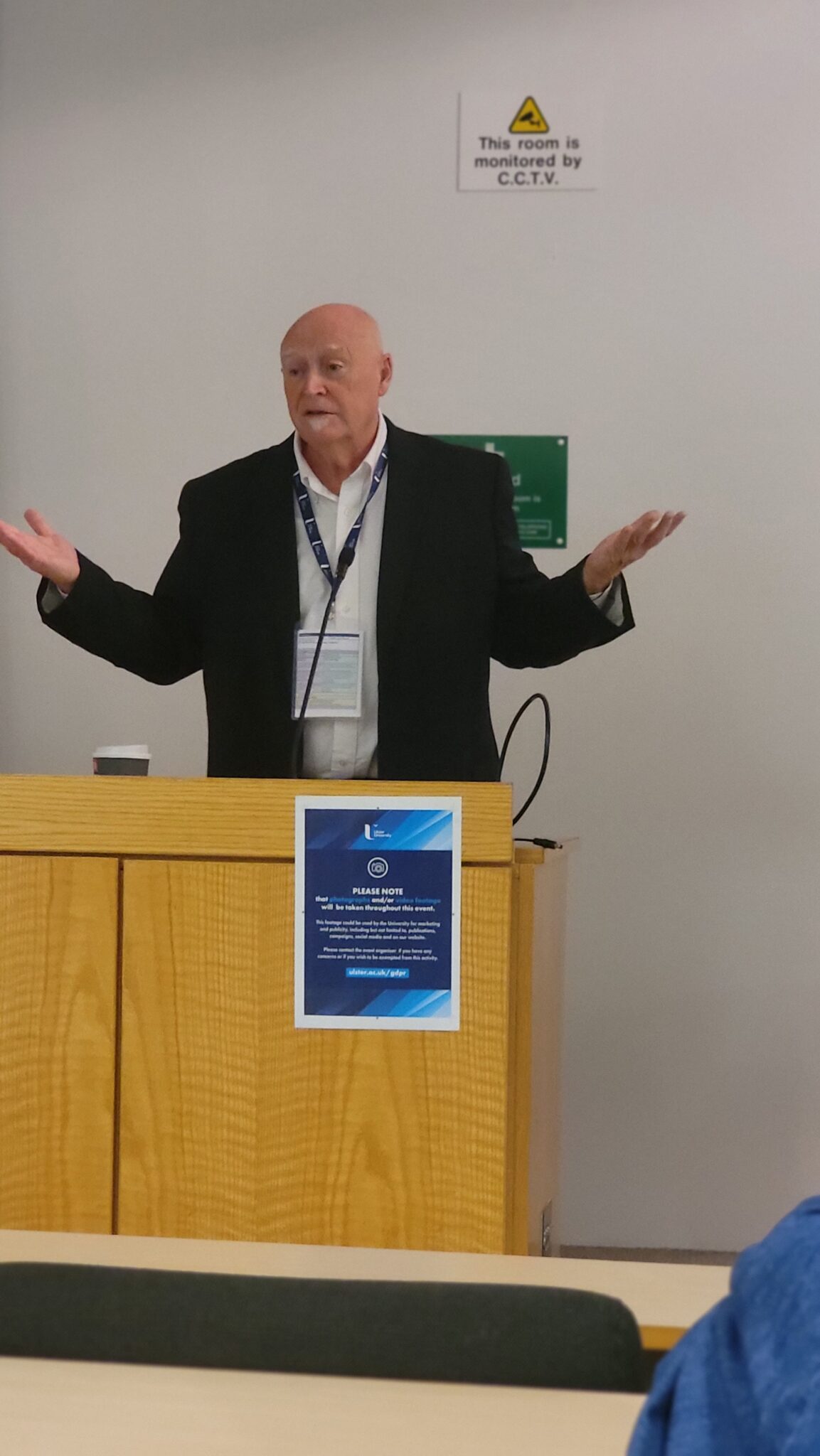
From Sept. 13-15, 2023, I had the privilege of participating in the 39th Annual Conference of the International Society for the Scientific Study of Subjectivity, known as the “Q Conference,” held in Belfast, Northern Ireland.
Throughout the conference, I attended numerous presentations, shared my own research titled “Sports logos that inspire: Exploring the elements of sports logo” and contributed as a panelist in the “Expert Panel on Q Methodology.” However, the pinnacle of this experience for me was the honor of delivering a keynote address. This was my inaugural experience as a keynote speaker, and the request humbled and privileged me.
My keynote speech revolved around the journey from conducting one’s maiden Q study to evolving into a mentor in Q-methodolgy. The central theme of my keynote was elucidating the common bewilderment encountered during the early stages of research, and how, with each subsequent study, we accrue confidence and expertise.
In due course, we find ourselves guiding emerging scholars on their own Q-methodological odyssey. Moreover, the keynote provided a platform for me to expound on my methods for teaching research techniques to undergraduate students in Newhouse’s public relations program and graduate students studying public diplomacy and global communication. This address was warmly received and afforded me the opportunity to sing the praises of our students.
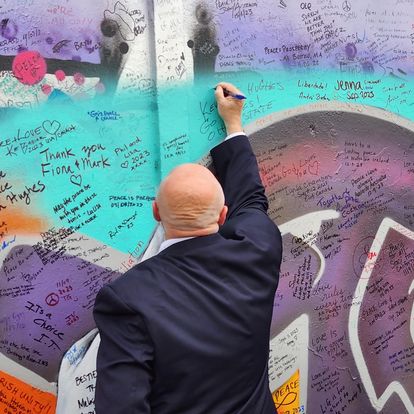
I typically participate in two conferences each year, and these conferences offer me the chance to see new scholars presenting their research, reconnect with familiar faces in the academic community and explore intriguing destinations. However, the true value of attending such conferences is in the acquisition of new knowledge about the latest, cutting-edge research.
This wealth of knowledge is then transferred to the classroom, where I can impart it to my students. Newhouse students, renowned for their curiosity and passion, exhibit keen interest in studies that contribute to our understanding of the world and people who inhabit it.
Dennis Kinsey is the director for the Newhouse School’s public diplomacy and global communications program and a professor of public relations.
Newhouse Master’s Student Jordan Pierre Seeks to Amplify Unheard Voices Through Clothing Brand
Jordan Pierre ’23 wants to build a village—not a physical one, but a collective of people helping each other and using their voices to amplify those who may have gone unheard.
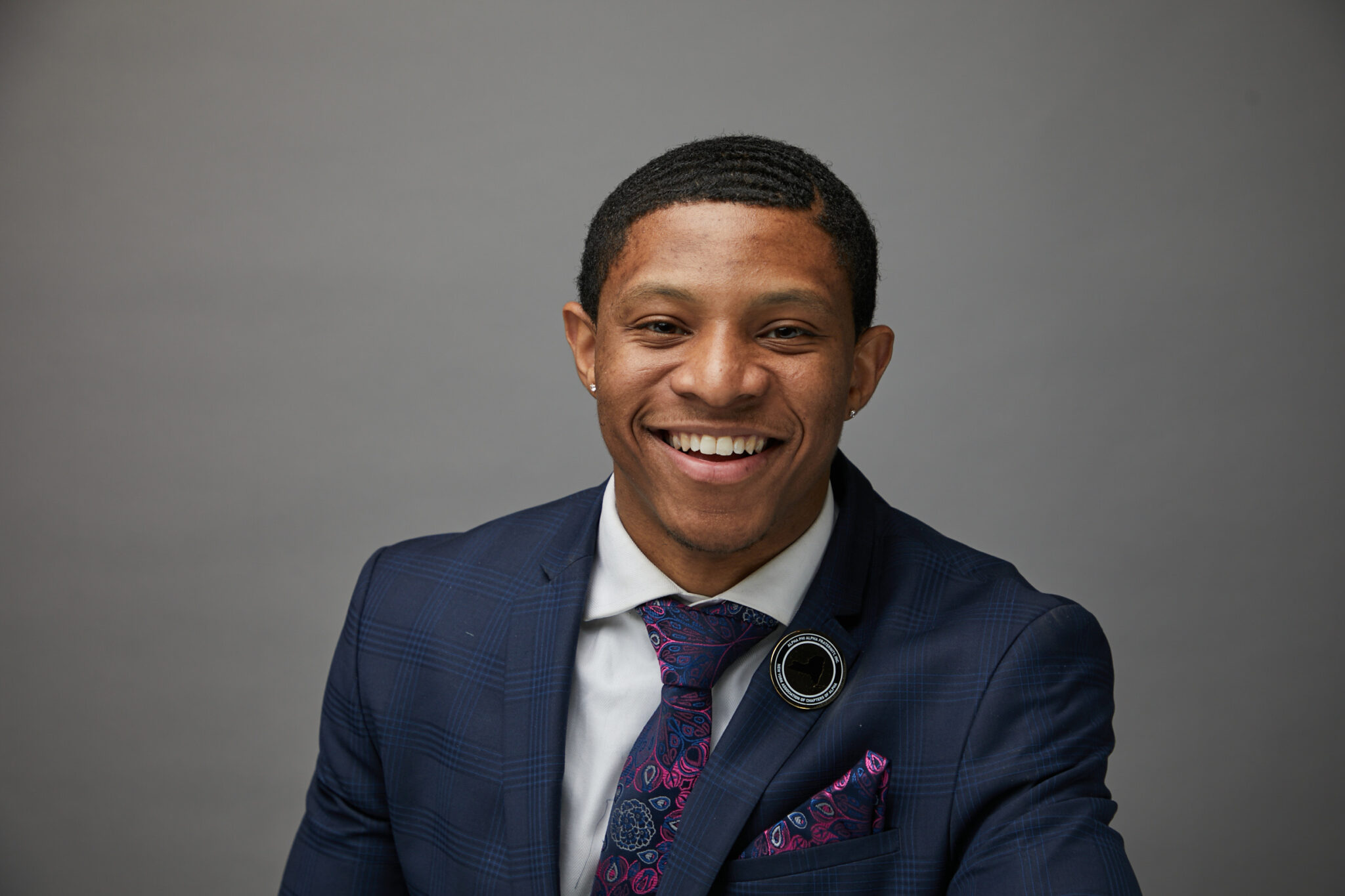
The platform for the television, radio and film master’s student to build that community is his clothing brand, VOICE, which he launched as a sophomore in high school. Pierre, who earned his bachelor’s degree in broadcast and digital journalism from Newhouse last May, maintained the business through his undergraduate career and now hopes to grow VOICE again while he completes his yearlong master’s program.
“They say it takes a village to raise a child,” Pierre said. “I extended that quote and say now that it takes a village to raise a child and that village does not have to look one way, but they must share the same mission, which is that of equity.”
The roots of VOICE go back to 10th grade, when Pierre said he witnessed the injustice of media coverage that existed back home in Brooklyn, New York. He noticed that news outlets only started to cover stories after tragedy struck, like when a young Black man in his community was killed.
“A eulogy shouldn’t be the only time the voice of my community is heard,” he said.
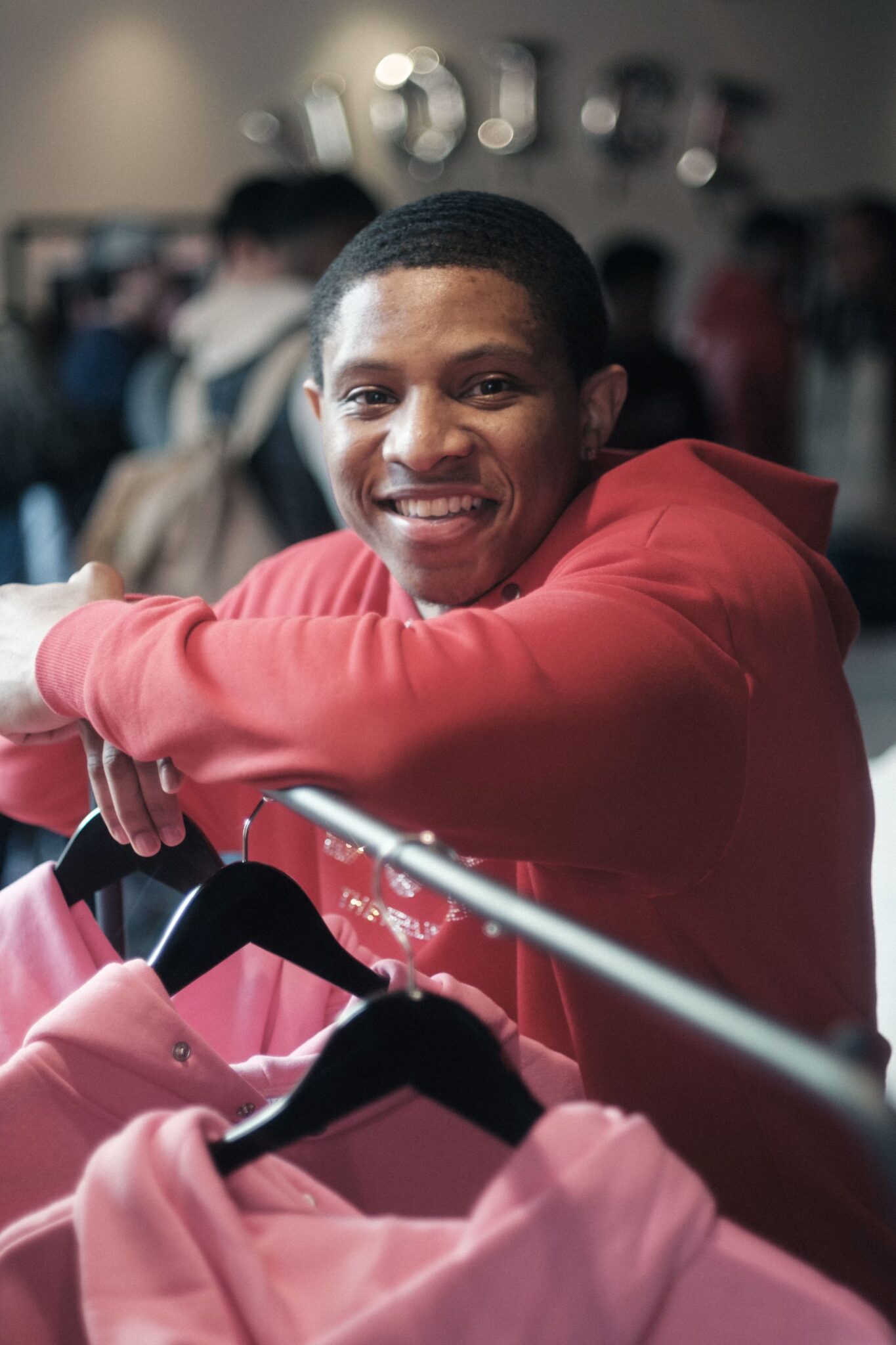
Pierre decided he would use his experiences to generate positive action and created VOICE as a “form of resistance and reaction to the conditions I was being raised under.”
Classmates and friends have asked him for years for a VOICE sweatshirt. He began granting those requests on March 27 at a pop-up shop at 171 Marshall Street in Syracuse.
The VOICE collection he promoted at the pop-up shop, called “Can’t Fold,” draws its inspiration from the streets of Brooklyn, he said.
“This phrase encapsulates the resilience of those who, despite facing adversity, refuse to succumb to despair.”
Pierre knew the decision to stay at Syracuse after earning his undergraduate degree in May was right not only for him, but for the students who will follow in his footsteps.
“I felt like there was some work that was undone, and I didn’t effectively equip or teach young men how to carry the baton after I left,” Pierre said.
Pierre is also the recipient of a Forever Orange Scholarship, which provides half the tuition for students who enroll full-time in a qualifying graduate degree or certificate program at Syracuse University. The scholarship is automatically available to graduating seniors who are eligible for admission and commit to attend graduate school immediately after graduation.
VOICE is not only a brand or a sweatshirt, but symbolic of Pierre’s village of people that want to take a stand against injustice. Pierre said that someone making the choice to represent VOICE shows that they, like him, are not going to stay silent and know they are capable of evoking change.
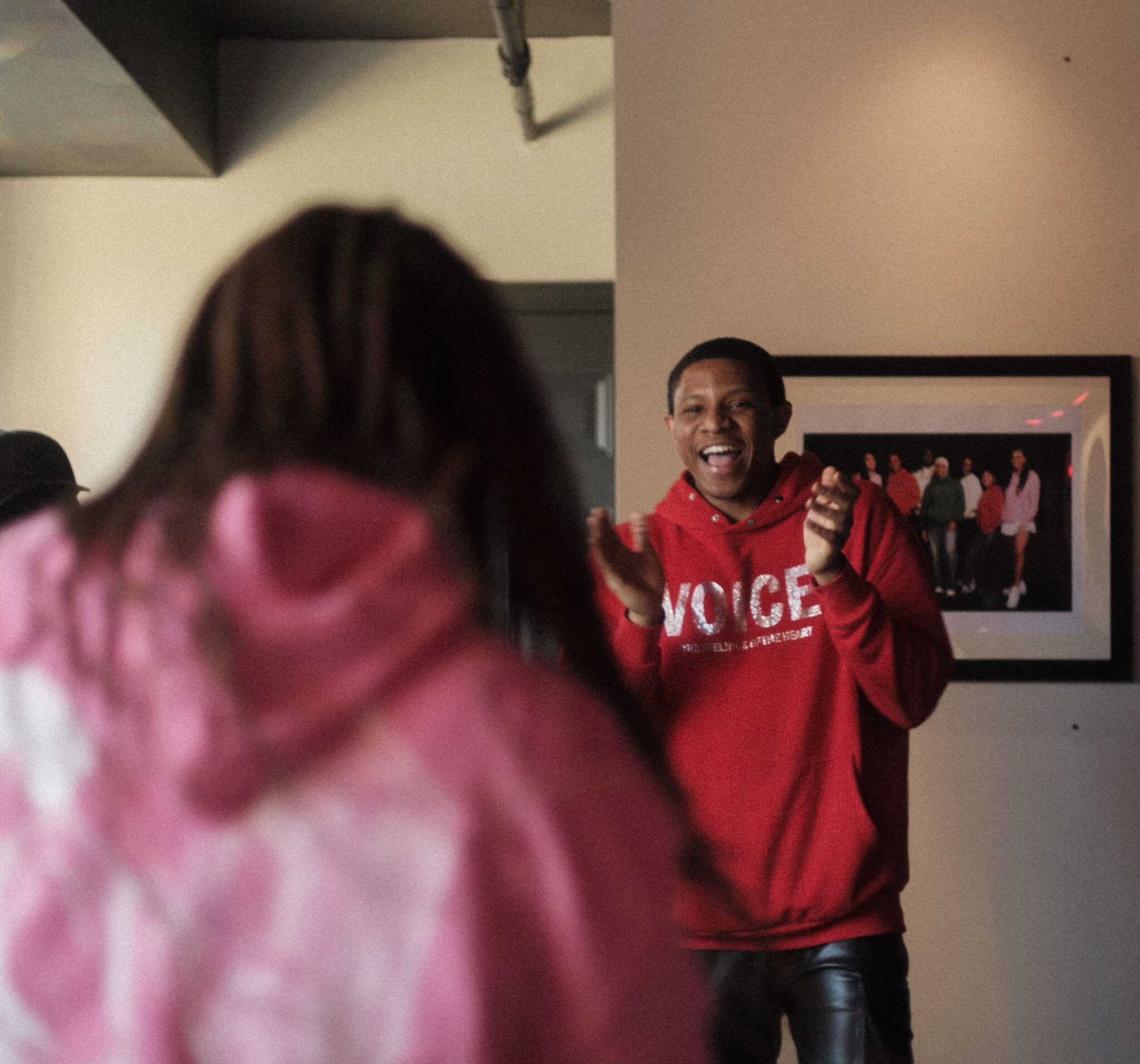
Pierre makes sure no opportunity to use his platform is wasted, making his message clear in a powerful speech at Newhouse Convocation in May 2023 that landed him on “The Today Show” on NBC.
As he completes his graduate year, Pierre is using his platform to build community. Every Thursday night, he facilitates a meeting of 15 to 20 young men on campus where he teaches them to navigate conversations about equity and making oneself heard.
These meetings, like VOICE, are about “making other people understand that they, too, have the power to shift the paradigm of the nation,” Pierre said.
For Pierre, the Newhouse School has equipped him with the understanding of language and the media to convey a message to an audience.
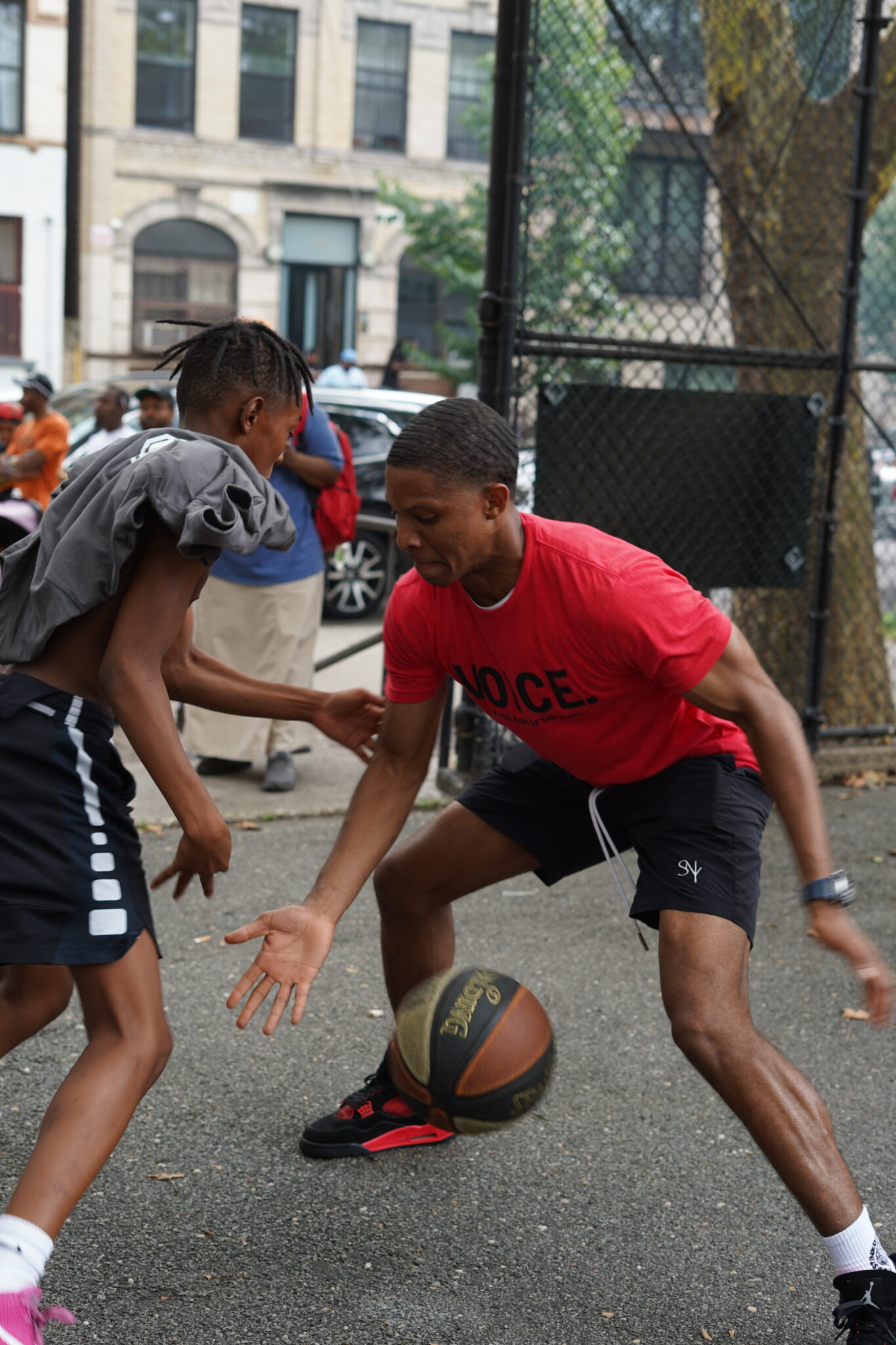
“We say that those who control media control the mind,” Pierre said, “And I’ve learned more about how media plays a role in shaping identity and shaping the lens through which we see the world.”
That’s how Pierre decided that he wants to use his platform to educate himself “and then re-disseminate certain information that is learned” to people in his community. To do that successfully, Pierre said he has tapped into lessons from Newhouse faculty members like Brad Gorham, Robert Thompson and J. Christopher Hamilton, who Pierre said have provided him with foundational knowledge, the ability to critically analyze and a financial understanding of the media industry.
With his clearly curated vision, Pierre feels that now is the perfect time for a resurgence of the brand he started in high school.
“I’m at the time now where I believe God is making space in my life to build a village,” he said. “And I think this will be the first time to see it visibly, the impact I’m having based on the amount of people willing to be a part of the village.”
Brooke Borzymowski is a junior broadcast and digital journalism major at the Newhouse School.
Remembering Dow Smith
This message was first sent to Newhouse faculty and staff.
Colleagues:
I write again today to pay tribute to someone that many Newhouse alumni in broadcast journalism, faculty and staff knew well.
Dow Smith, a retired associate professor of broadcast journalism, passed away on April 2 in Albany. He was 83. While I never worked with Dow at Newhouse, he had a sterling reputation in broadcast circles as a newsroom leader, dedicated educator and as the author of a definitive textbook on producing TV news. I used and assigned his outstanding textbook, Power Producer, at both the University of Maryland and Arizona State University. His career as a producer, news director and TV station general manager included tenures in multiple markets around the country under multiple ownerships before joining the Newhouse School in 1995.
Associate professor and former associate dean Dona Hayes describes Dow as a “fountain of broadcast journalism knowledge” who knew everyone in the business. In particular, Dow loved teaching news producing and spread his enthusiasm for behind-the-camera work to the scores of students he trained at Newhouse. A U.S. Navy veteran, Dow also served as director of the Military and Visual Journalism program.
Recalls Dona: “Dow was also a special colleague because he cared about people. He and I shared artistic sons whom we often kibitzed about. He adored all of his children, grandchildren, his wife, Bonnie, the Sears catalogue house they settled in near Albany and fast British cars.”
Dow retired from the Newhouse School in 2008 but left a lasting impression with the many students he mentored who went on to successful careers as broadcast journalists and news leaders. Here is part of a touching tribute from Kyle Grimes ’99, vice president for New England of Hearst Television and president and general manager of WCVB-TV in Boston:
“Dow was inimitable. Larger than life in stature and spirit. He developed the newscast producer program at Newhouse and added to the rich legacy of the school by creating yet one more attribute that differentiated Newhouse from its peers.”
A private memorial service is planned for this summer. In lieu of flowers, the family has asked in his obituary for donations to be made to the Committee to Protect Journalists. On behalf of the Newhouse community, I want to extend our sincerest condolences to Dow’s family and friends.
Sincerely,
Mark
Newhouse Faculty Honored by University for Teaching Excellence
Syracuse University recognized five Newhouse faculty members this spring with the following honors. We are immensely proud of their achievements, work and dedication to helping Newhouse students succeed.
Award for Outstanding Contributions to the Student Experience and University Initiatives
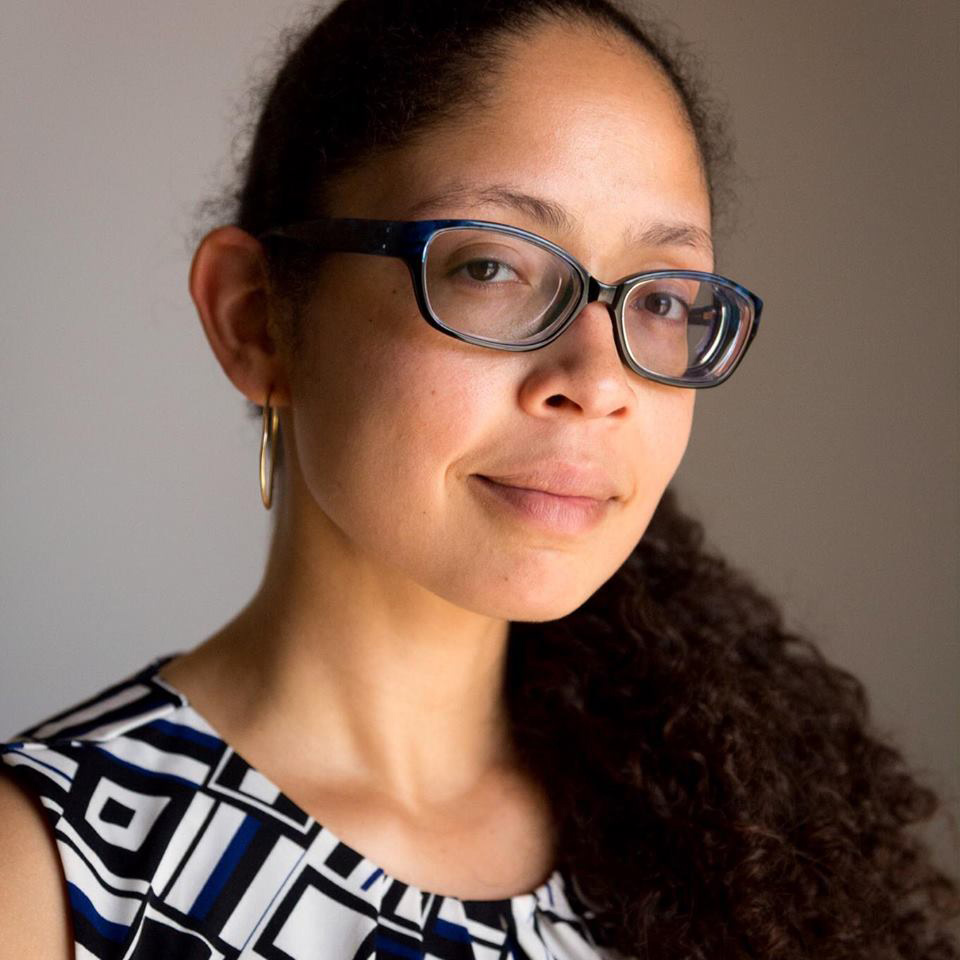
Charisse L’Pree Corsbie-Massay
Associate Professor, Communications
This Chancellor’s Citation for Excellence award is given to University faculty and staff who, through their work, have enhanced the undergraduate experience for students or made invaluable contributions to supporting and advancing the University’s mission and goals.
The Laura J. and L. Douglas Meredith Teaching Recognition Award for Early Performance
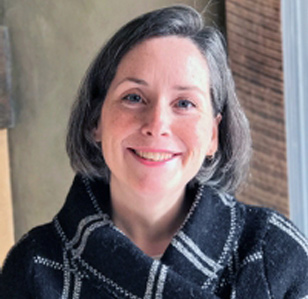
Kelly Leahy
Assistant Professor, Television Radio and Film
Milton Santiago
Assistant Professor, Visual Communications
The Teaching Recognition Award program recognize excellence in teaching among untenured faculty. These awards aim:
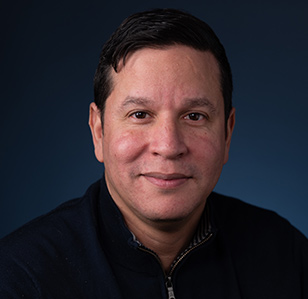
- To recognize and encourage teaching excellence among tenure-track faculty in their first five years,
- To recognize and promote teaching excellence through the teaching career among teaching professors and professors of practice at any rank, and
- To encourage a culture of collegial mentoring among members of the Syracuse faculty.
The Judith Greenberg Seinfeld Award
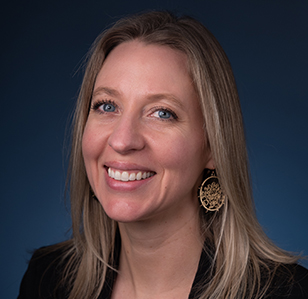
Rebecca Ortiz
Associate Professor, Advertising
The Seinfeld Scholar Award highlights excellence, creativity, and innovation and encourages future contributions to society. The program recognizes those faculty and students:
- Who have (i) “made an outstanding contribution to the beauty of the world, who have added to human values, and to ending human abuse,”
- Who have (ii) passion for excellence, creativity, and originality in academic or artistic fields, and
- Who demonstrate the (iii) “ability to motivate and bring out the best in others.”
Excellence in Graduate Education Faculty Recognition Award
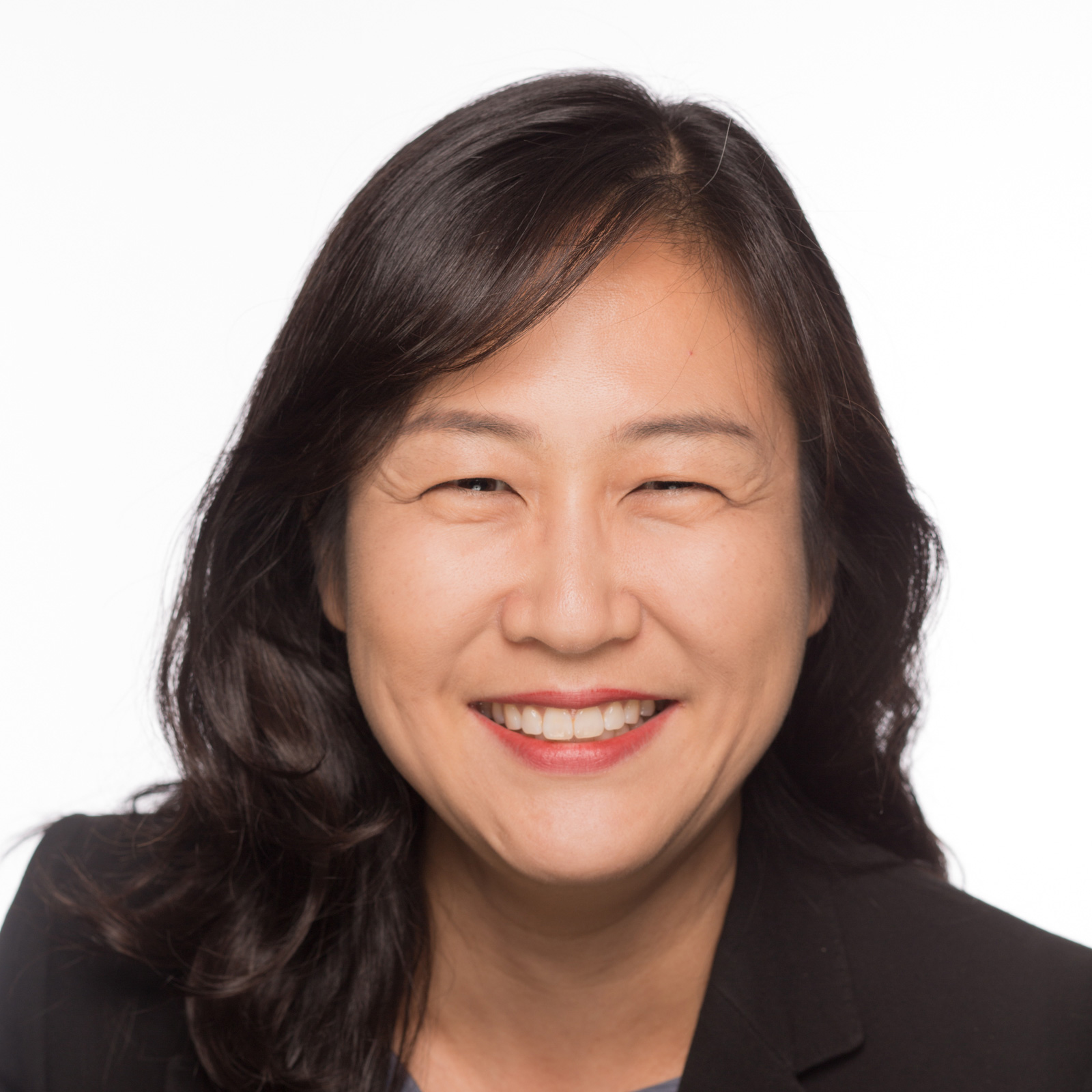
Soo Yeon Hong
Associate Teaching Professor, Public Relations
Graduate Program Director, Public Relations
This award from the Graduate School honors faculty who have a significant, positive influence on graduate education through their commitment to superior graduate teaching, dedication to departmental and community presence and research initiatives.
Newhouse Student Develops Passion for Data Journalism Through Work on Police Vehicle Crash Investigative Series
To be honest, I wasn’t really sure what to expect, but the idea of an investigative data journalism project, as much of a word salad as it was, appealed to me. When I started my internship with the “Driving Force” investigative series at Newhouse, I had worked with data by the very nature of my majors in magazine, news and digital journalism (MND) and economics, but I had never dealt with the investigative side of journalism. I hadn’t had much actual journalism experience up to this point. After all, I started this internship after only my first year at Syracuse University. So this was a plunge into the deep end.
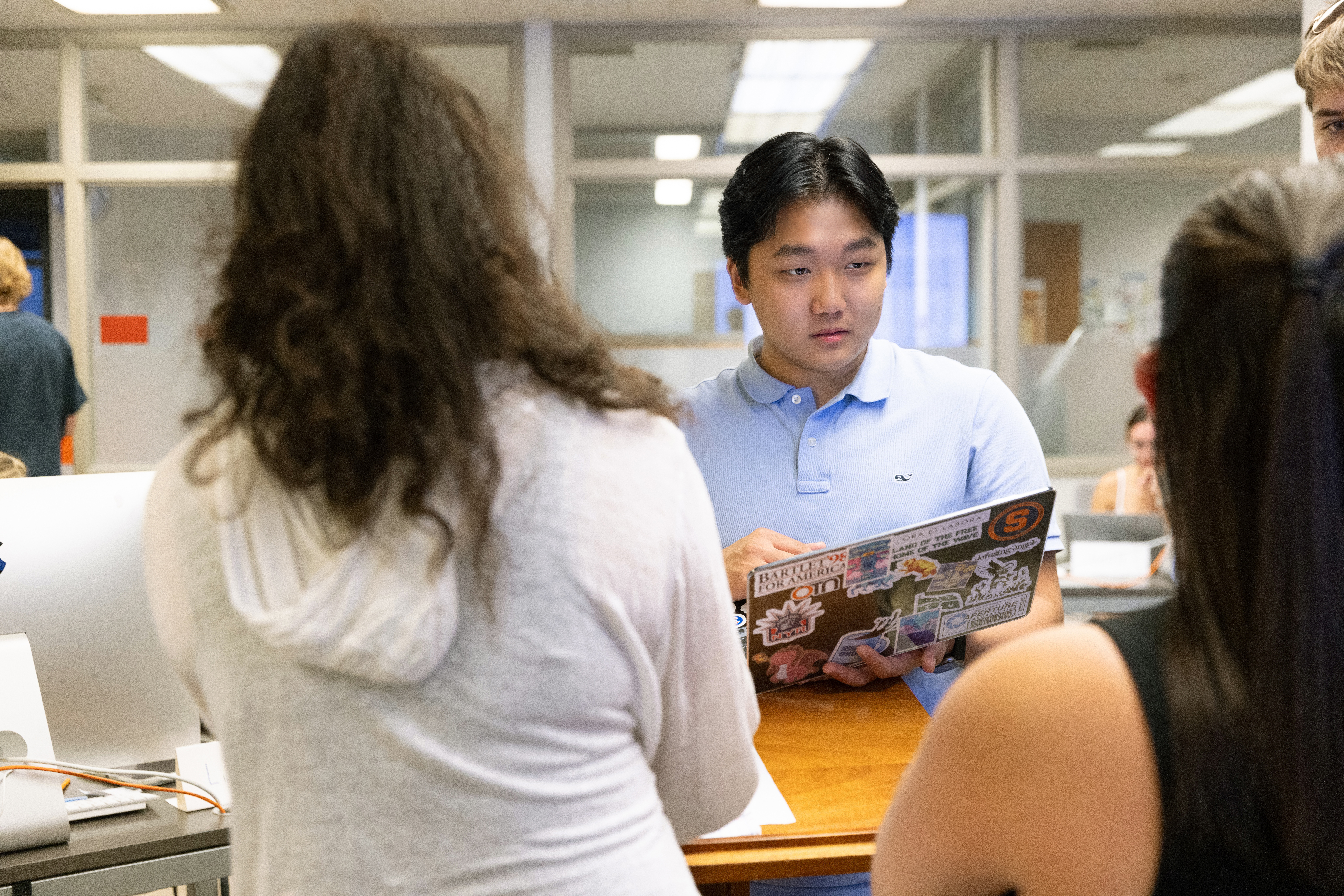
The investigative series, led by Jodi Upton, Knight Chair in Data and Explanatory Journalism, and Nausheen Husain, assistant professor of magazine, news and digital journalism, looks at police vehicle accidents and the impact such crashes have had on communities across New York State. It is published on The NewsHouse, and includes stories about emergency driver training for officers in New York State, victims of police car crashes and more.
In my data tagging role, we started at the foundation of data journalism, the data set itself. From filing Freedom of Information Act requests for disciplinary and accident reports, to reading said reports and logging them into our spreadsheet with hundreds of entries, my fellow intern, Evan Butow, and I worked for weeks collecting data and logging it. This was a grueling process, but absolutely essential in finding the officers with the most accidents, discovering their habits and other trends across all these accidents.
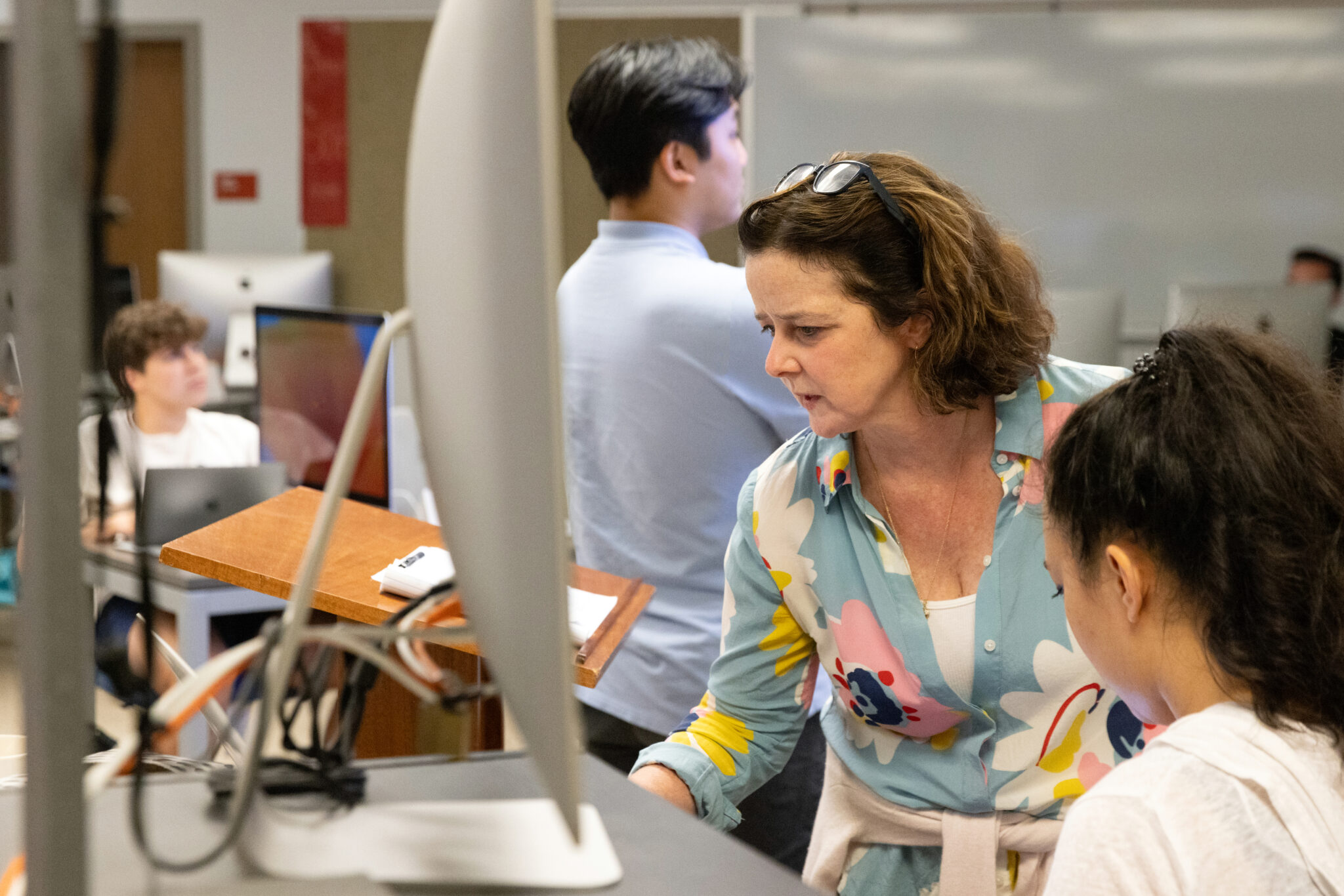
At the end of this process, we presented our findings and conclusions to the wider team of journalists at USA Today and the Central Current. With the help of USA Today investigative reporter Beryl Lipton and editor Sarah Taddeo, we were able to lock in on a number of trends and stories we wanted to investigate further. Throughout this process, there were always twists and turns as we found unexpected trends or different stories relating to police accidents by looking at court cases.
One of the most important aspects of the investigation was the real human impact. Police car accidents affect the public more than one would guess. There are countless stories of victims being hurt in these accidents and officers not facing the consequences. Between the numbers and spreadsheets, there is a real human story to be told.
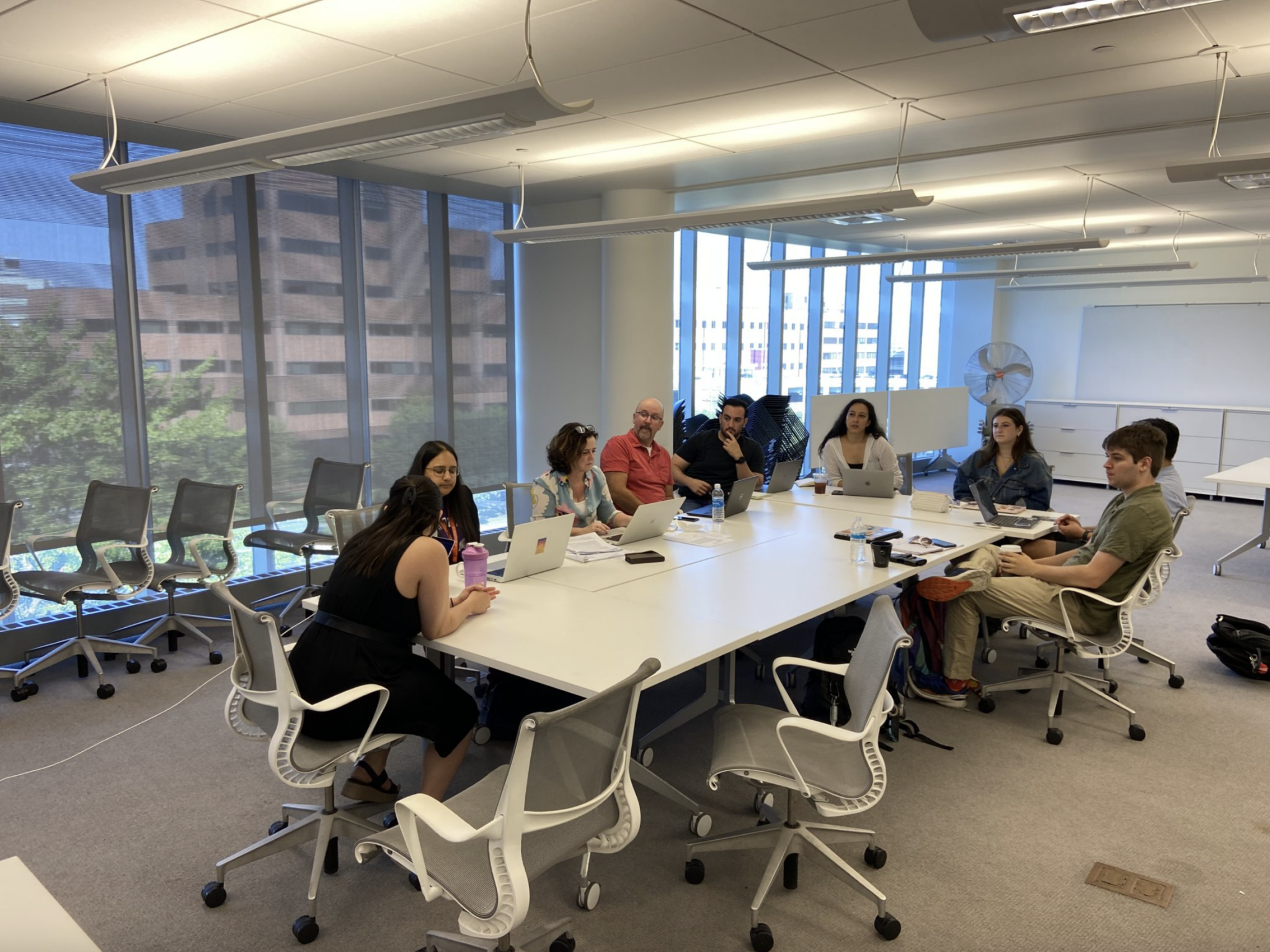
Then there’s the uncomfortable aspects. Talking to police chiefs and getting them to submit the reports they are legally required to provide. Reaching out to victims or the families of victims to see if they would allow us to tell their story, anticipating the rejection that may follow.
The investigative process is slow. It’s a lot of small steps that aren’t always a straight path and require patience and commitment. It’s about being ready to abandon a route if there isn’t anything there. But it was work that, when it comes to fruition, enabled us to tell the story of people who were forgotten by everyone else.
I was able to be a part of a project that will make a tangible change in the world. It would never have happened without the help of Professor Husain, Professor Upton, the support I got at Newhouse and the incredible journalists at USA Today and the Central Current who taught me so many valuable skills. With the mentorship from all these wonderful people, I have developed a genuine passion for investigative and data journalism that I hope to foster into a career.
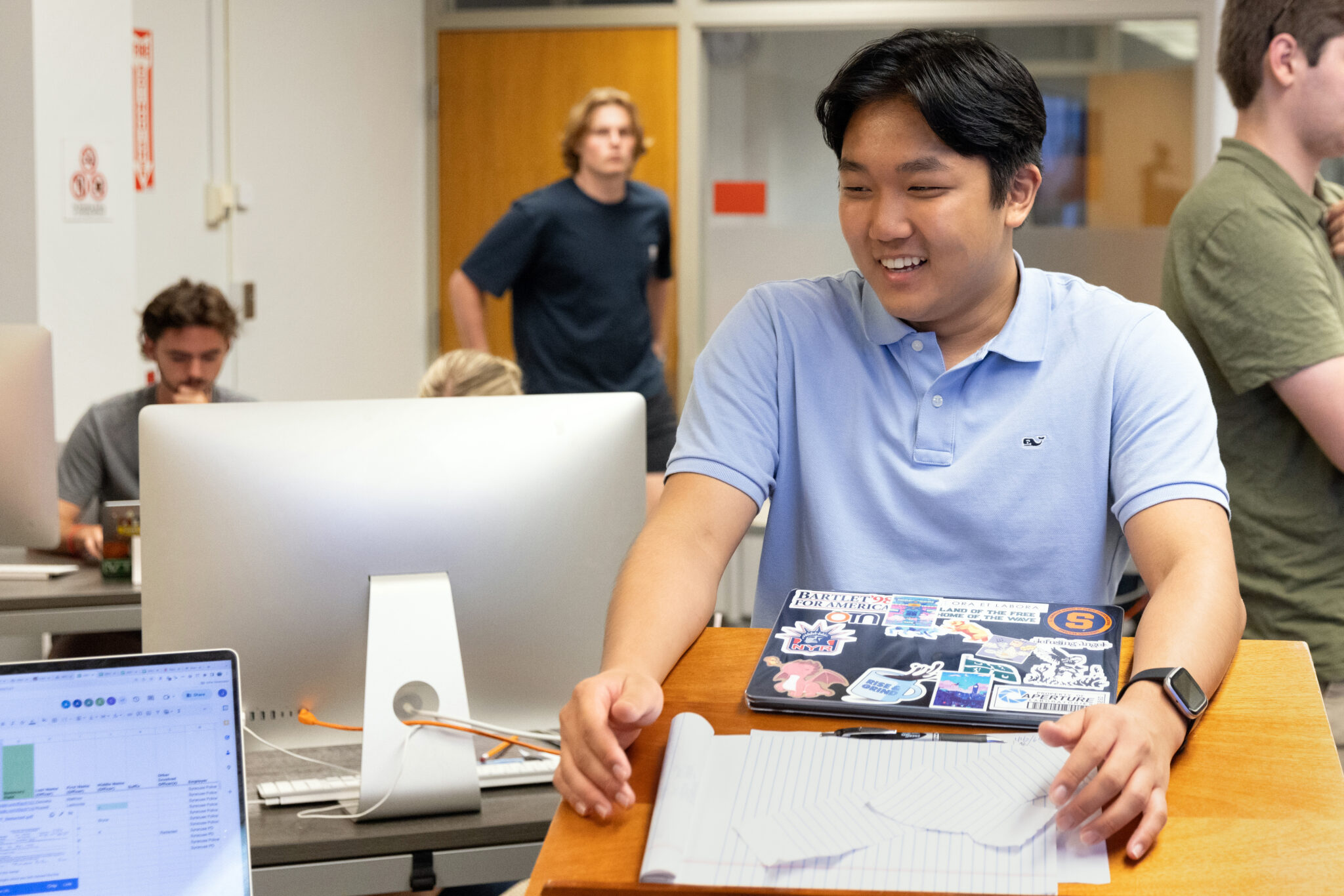
After working on this project and now going into my second year on campus, I’ve gained a different perspective on journalism that I can take with me wherever I end up. I don’t think anything can take me by surprise now.
Hayden Kim is a junior majoring in magazine, news and digital journalism at the Newhouse School and economics at the Maxwell School of Citizenship and Public Affairs.
Grad School is Unexpected
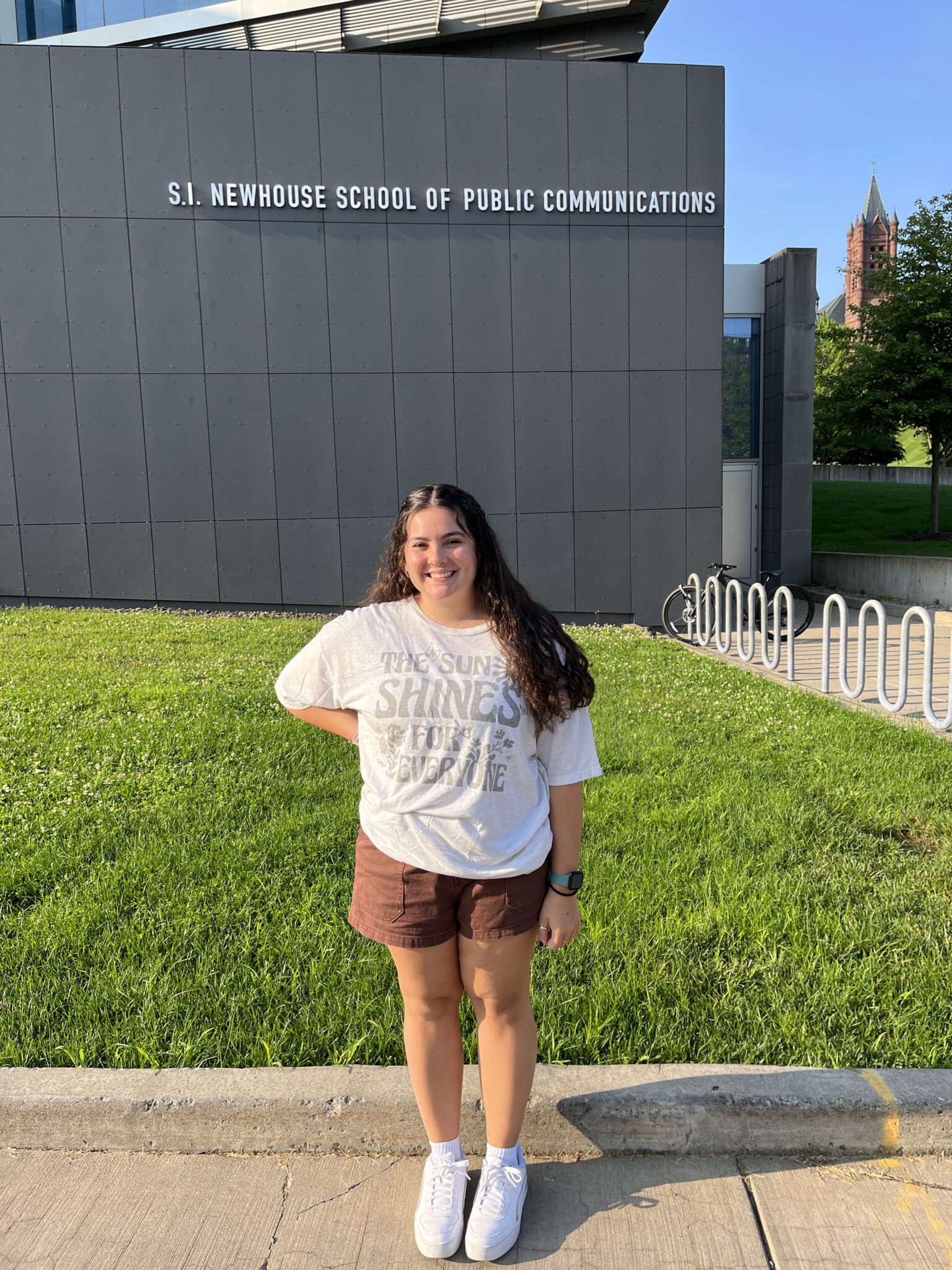
(Photo courtesy of Alex Caban-Echevarria)
Grad school is unexpected. When I came to Syracuse, I had never lived away from home. Having gone to college three blocks away from my house, I didn’t have to worry about paying for laundry or missing my bed, because I could go home whenever I wanted and still be near my classes. It was the best of both worlds – being independent and having that safety net. I quickly realized that it’s a lot of responsibility to take care of myself, stay on top of my school work, have two jobs, keep in touch with my friends and visit my family as much as I can. I’ve learned so much about myself, like how I like going to bed early and waking up early, especially with the reward of a beautiful sunrise. I’m okay with spending time by myself, especially if I get to catch up on my favorite shows and reading books.
Grad school is living in Syracuse for four months and still feeling like every day is brand new. During bootcamp, the magazine, news and digital program had a vey regimented schedule. I would get on the bus at 8:04 every morning and come to Newhouse for class. We’d have a lunch break between 12 and 1 p.m., and resume class for the next four hours. On Mondays and Tuesdays we had the same class and Thursdays and Fridays we’d have another. Wednesdays came with a much needed end time earlier than 5 p.m. We did this for six weeks, yet every day we learned something new, we pitched a new idea or revised existing stories. On the weekends, I’d go to the gym, sleep in or explore nature, especially Green Lakes State Park. For one of my stories, I even attended Shakespeare in the Park’s production of “West Side Story.”
Grad school is setting 100 alarms a day. I came to Newhouse thinking I was really organized and had everything figured out. I had that only partially wrong, because I just got more creative with my organizational methods. Now, well into my second semester, I’m fully reliant on doing what my alarms tell me to do, whether that be to get out of bed or leave for class. I have perfectly timed alarms in anticipation that I’m going to snooze them, especially the one that tells me to get out of bed. People told me to prepare for the seasonal depression, but it wasn’t until our first break was in sight that I realized how much I needed it. Most of our professors have noticed the burnout creeping in, and are attuned to when we are stressed and look like we haven’t slept.
Grad school is having friends even when I said I wasn’t going to make any. I thought being in journalism school meant that I would be surrounded by my competition, but the more time I spend with my cohort, I realize that I have nothing to be worried about. My cohort is made up of my friends and people who understand me more than anything. Everytime we share our work in class or someone gets published, it’s a shared moment of joy.
Grad school is full of surprises, and I’m just along for the ride.
Alex Caban-Echevarria is a graduate student in the magazine, news and digital journalism program at the Newhouse School.
How to be More Sustainable in Newhouse
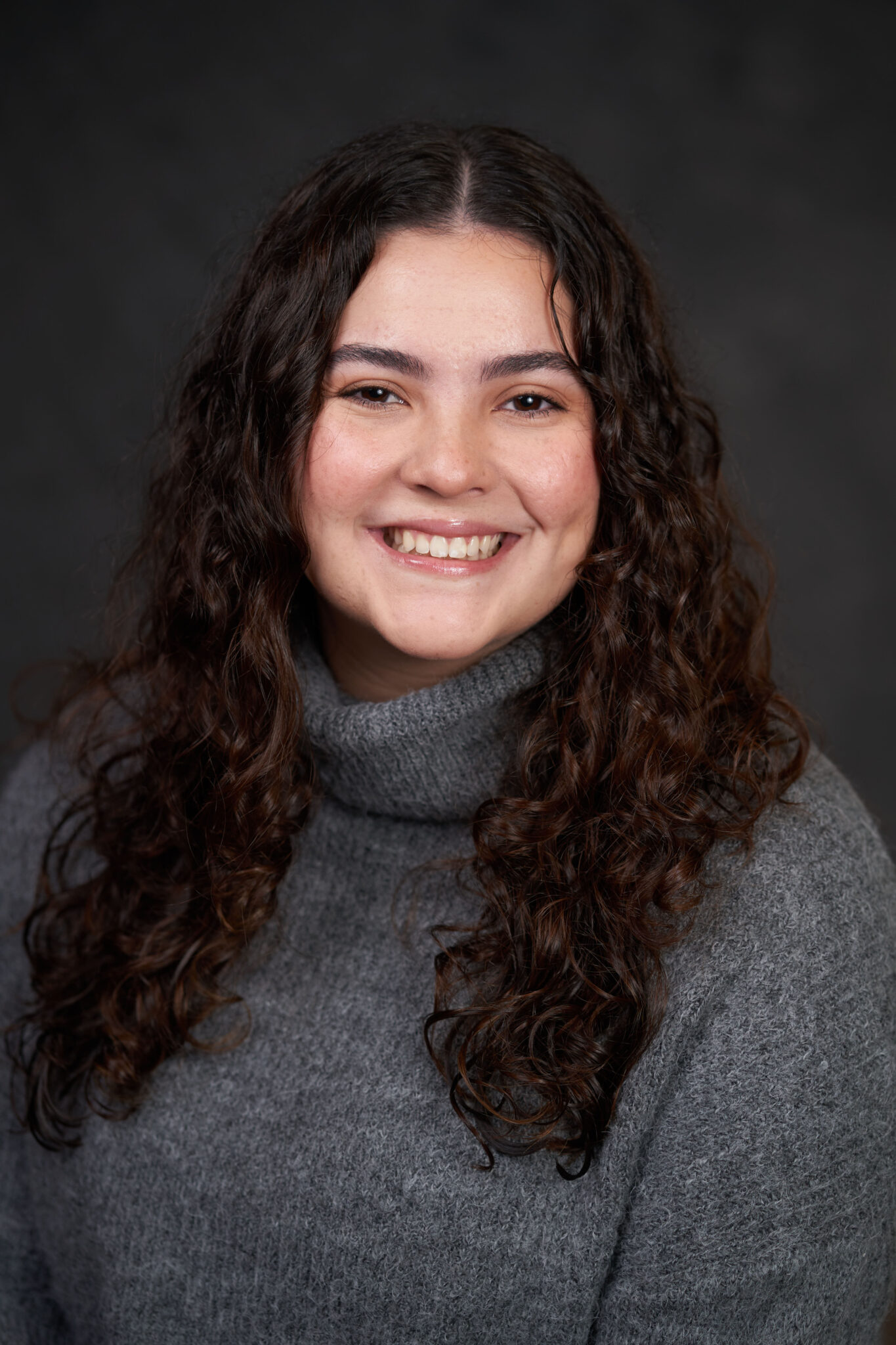
As graduate students, many of us have very busy schedules. Sometimes being crunched for time means breezing past small decisions. Part of being sustainable is being mindful of the choices you make. To be more sustainable in Newhouse, notice these four things you can reduce, reuse or recycle.
Single-use plastic: If you’re buying plastic water bottles, save money by investing in a water bottle and filter pitcher. Although it may seem like something that’s too trendy and something else to worry about, carrying a reusable bottle will become a habit. An initial investment of $30 could save hundreds over months.
Printing: Whether required for a class assignment or to help with reading, before printing an excessive amount, decide whether there is a more sustainable way to get a hard copy of something. Does a classmate have a printed copy of the reading you could borrow? Is the article or chapter from a book in the library? Can you ask your professor if they have a copy or if the assignment needs to be handed in physically? While we have printing money, we don’t get penalized for not using it.
Taking notes on paper: Buying and starting new notebooks at the beginning of the semester is satisfying, but is there another way to take handwritten notes? Whether it be finishing a notebook from last year or using your laptop or tablet if the class allows, repurposing already existing paper can help to reduce waste. Like digitally handing in assignments, seeing if an e-textbook is available can be another sustainable swap.
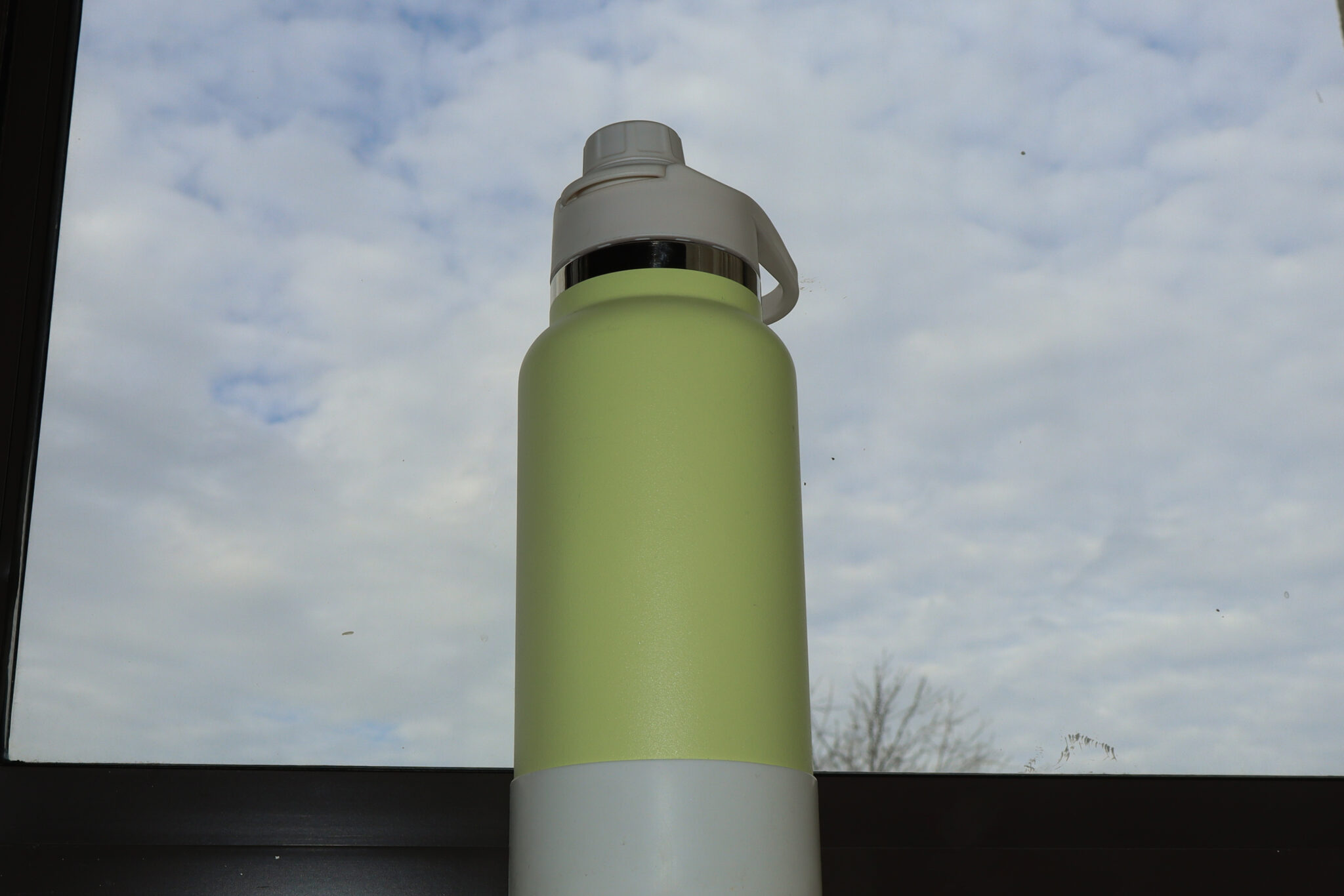
Food waste: Whether packing or buying food, reducing, reusing or recycling plastic wrap or uneaten food is something anyone can do. If you pack lunch, consider using reusable containers. If you pack lunch and end up buying something or not eating it, you can also use those containers to save it for later.
Remember that small choices add up and big changes can influence everything you do. Sustainability is for everyone, even busy graduate students. By valuing the resources you have, you end up saving money in the long run. Asking yourself whether something is necessary or if there is an alternative way will impact every aspect of your life, not just for being sustainable. Creative solutions are out there; you just have to look for them!
Alex Caban-Echevarria is a graduate student in the magazine, news and digital journalism program at the Newhouse School.
The Intersection of AI and Academic Integrity

There are many ways to use OpenAI’s ChatGPT tool, including fixing code, checking the tone in an email and generating images. Over the past year, ChatGPT has become a prevalent learning tool with upsides and downsides, like any new technology.
I first heard about ChatGPT this summer, while taking Data Journalism with Dan Pacheco, a professor of practice. We were shown how to ask ChatGPT to detect mistakes while writing HTML code and how Pacheco generated an AI-generated cover design for his new book. Pacheco and many other professors agree that when used correctly, AI can be a powerful brainstorming tool.
In my Graphic Design Fundamentals class, adjunct professor D. Addison Spears encouraged the use of ChatGPT to write our magazine cover lines and body copy. We could then customize it and use it instead of the standard Lorem Ipsum placeholder text in InDesign. This showed us the benefit of using ChatGPT as a starting point, especially when as a designer you want keywords or pull quotes to have more visual weight.
Since discovering these avenues for enhancing my creativity, I have used ChatGPT to brainstorm names for my beat in Enterprise Reporting, the title of my documentary in Multimedia Storytelling for Journalists and come up with the name of my first Newhouse Insider blog post “My Spring Elective Journey.”
More recently, I have seen other students use ChatGPT more, especially as a search engine to answer their questions about readings or class topics. As a tutor and instructional assistant, I work with undergraduates every day, and this got me wondering about the prevalence of ChatGPT in higher education. As students becoming more comfortable with advanced technology like AI in their studies, how can the pros offset the cons?
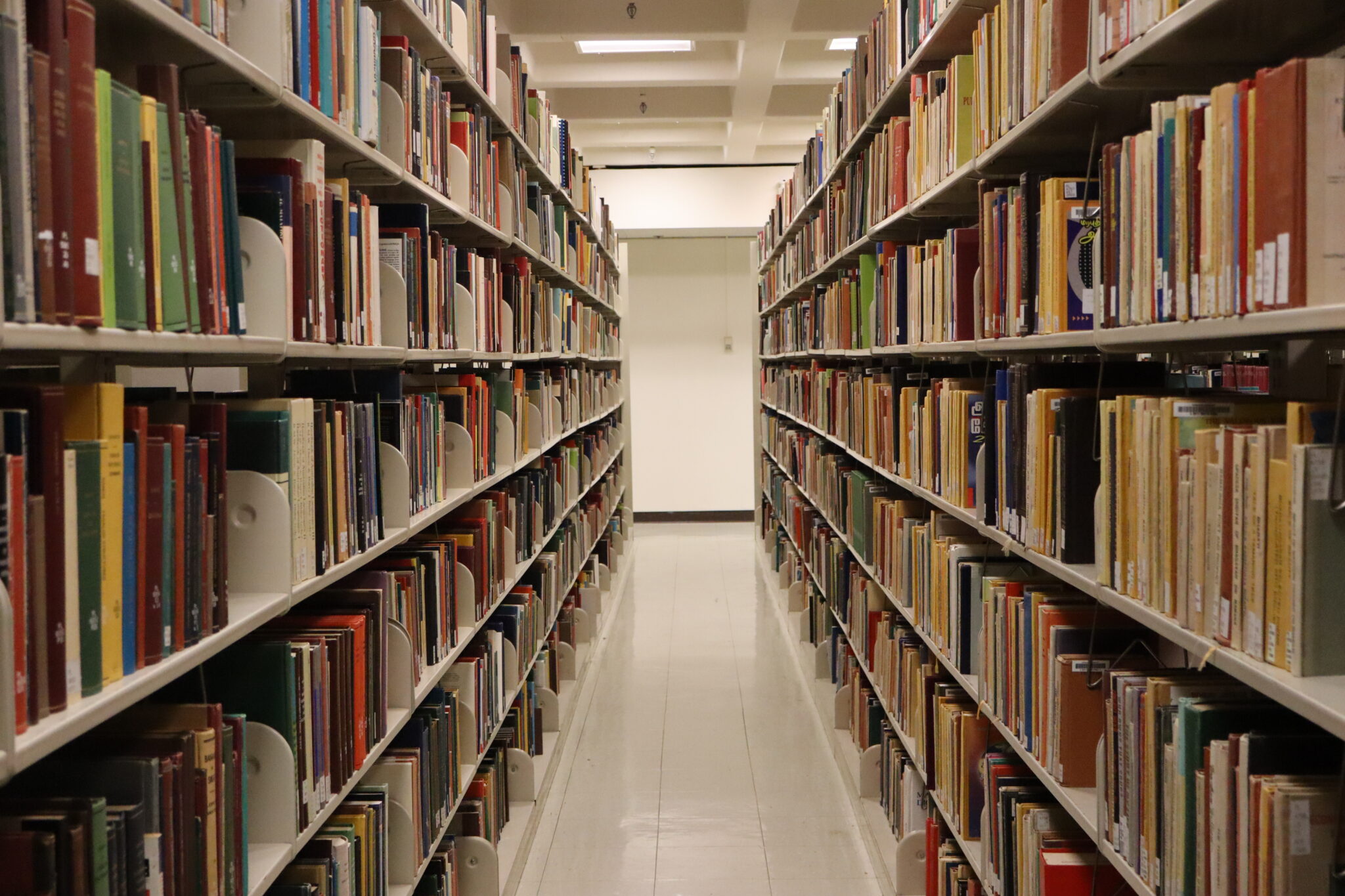
Professors this academic year have begun to address the issue of academic integrity regarding ChatGPT. One of my syllabi has a note that reads: “Any undisclosed or unapproved use of AI technology as a tool to supplement or replace your work on any class assignment will be considered a violation of intellectual integrity.” This statement highlights the deceit that comes with using ChatGPT, especially when students try to pass off work as their own, which is unfair to their classmates who have taken the time to write their assignments, and themselves to get out of a learning experience.
I’ve heard some students say that their classmates all write their papers with ChatGPT. I’ve observed students on the bus who copy and paste full conversations they’ve had with ChatGPT into a Word document. Whether these instances are all academic violations depends on the context, but the warning is clear — with great power comes great responsibility.
Alex Caban-Echevarria is a graduate student in the magazine, news and digital journalism program at the Newhouse School.